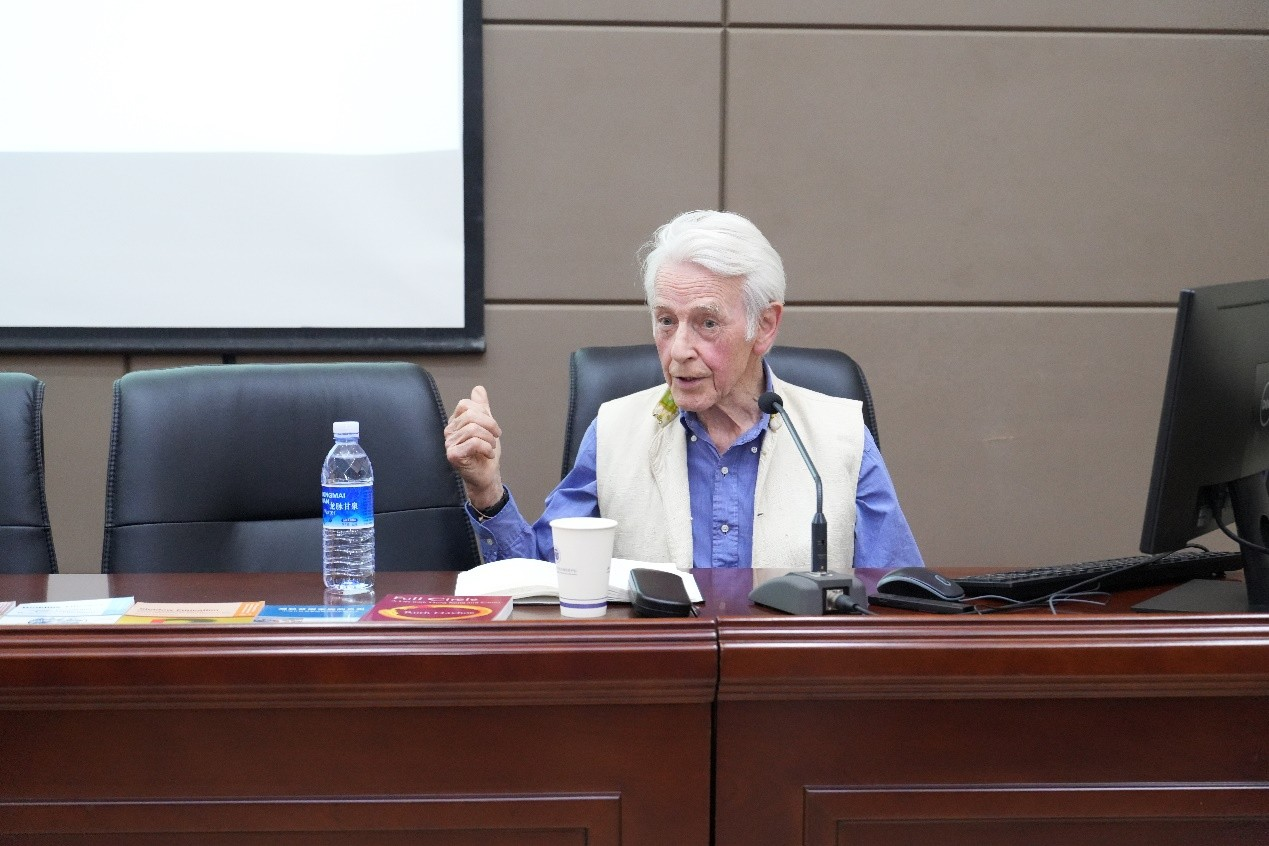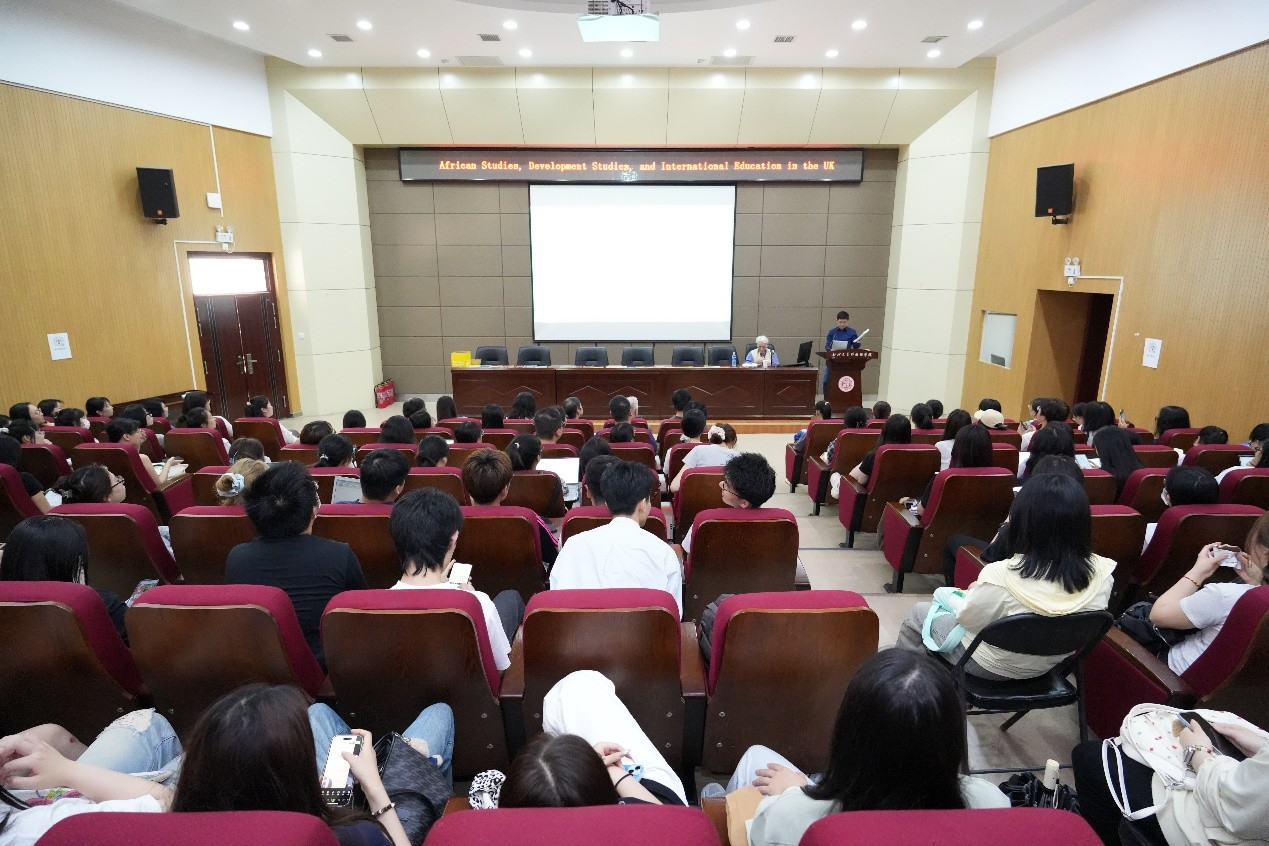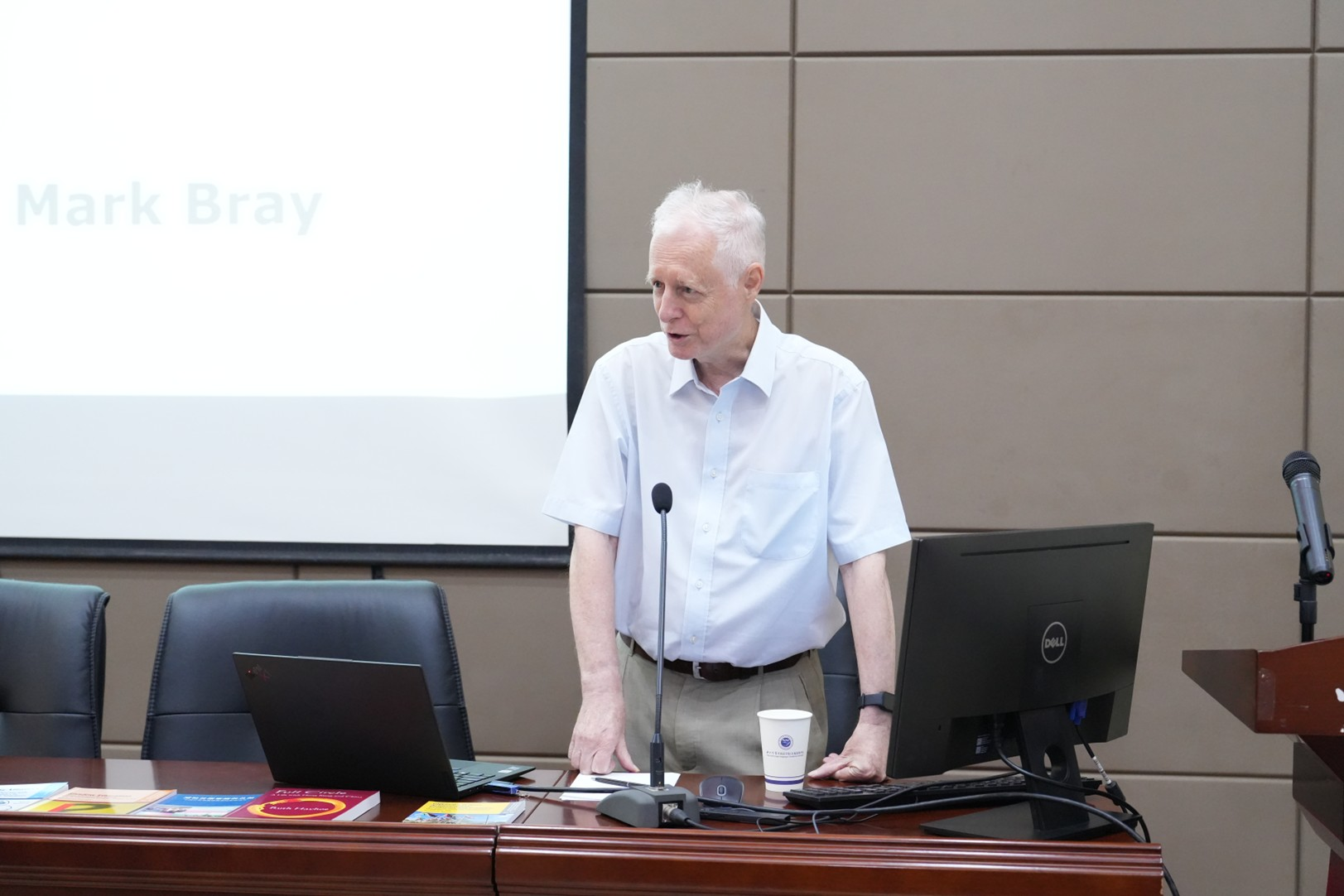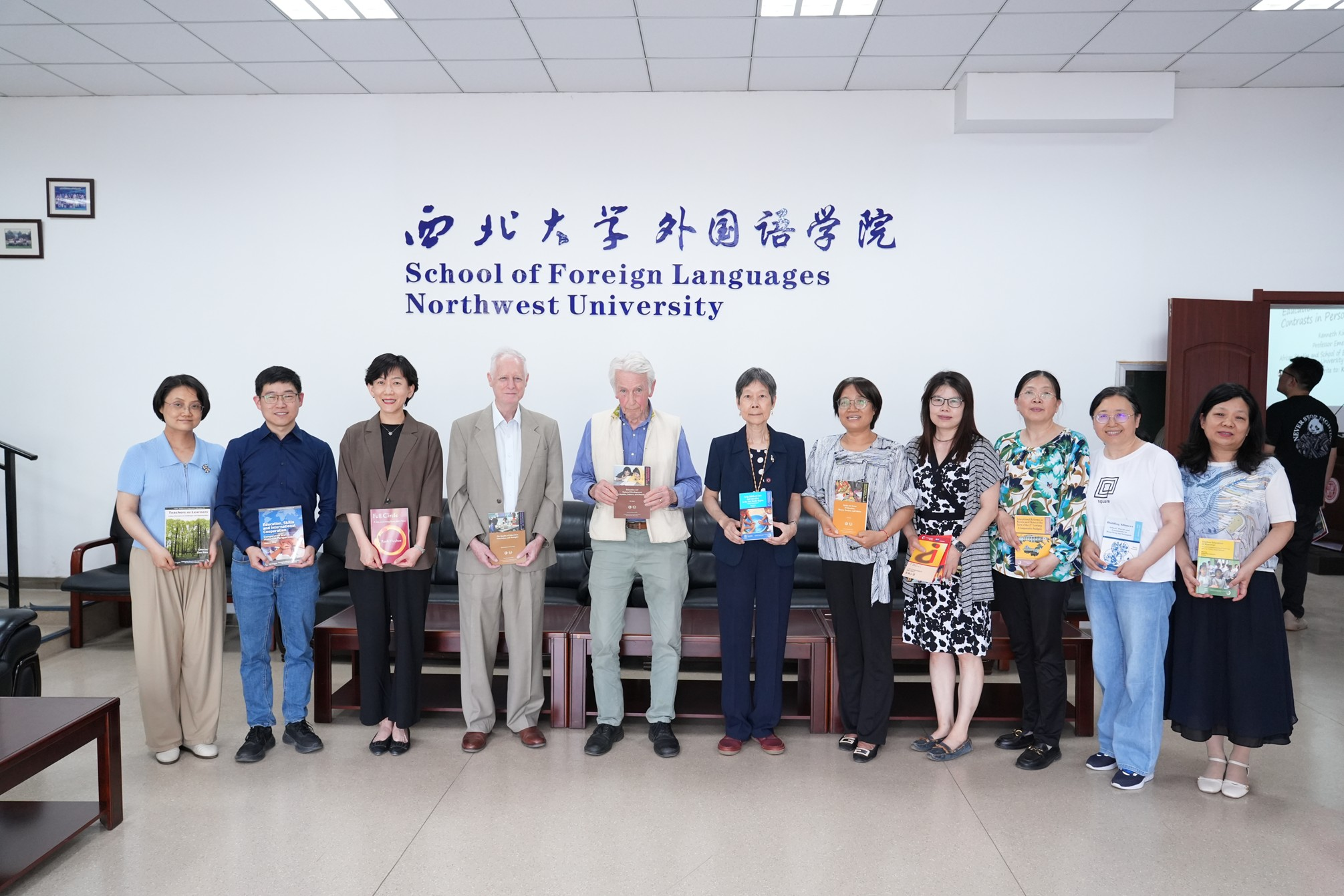On the afternoon of May 21, 2024, the School of Foreign Languages at Northwest University successfully hosted two lectures, “Africa Studies, Development Studies, and International Education in the UK” and “The UNESCO Vision for Exchange and Mutual Learning.” This event was co-organized by the School of Foreign Languages and the International Cooperation Department. The lectures were hosted by Dr. Li Siyuan from the School of Foreign Languages and attracted many faculty members and students from the university. Dr. Li warmly welcomed the guests and provided a detailed introduction to their research areas and academic achievements.
The first lecture was delivered by Professor Kenneth King, Chair of Comparative and International Education at the University of Edinburgh, UK. Professor King. Starting with comparing the timelines of when China and the UK began to focus on regional studies, Professor King pointed out that the UK’s regional studies are closely tied to its colonial history, while China’s regional studies have developed alongside the growing power of AI and the “Going Global” strategy. Professor King then systematically elaborated on the development of Africa studies, development studies, and international education in the UK and China, touching on aspects such as “Going Global” and soft power, the development of Confucius Institutes and Luban Workshops in Africa, and the growth of international and comparative education. He mentioned that the establishment of Confucius Institutes and Luban Workshops has provided opportunities for people around the world to learn Chinese and vocational skills, and has offered China a platform to showcase its “soft power” globally. Additionally, Professor King shared his personal experience in teaching English in Ethiopia and his research on Africa, presenting relevant photos and encouraging students to combine their translation skills with regional studies to contribute to the field. Finally, he showcased books and journals on Africa studies and regional studies published since 2005, offering valuable resources for both faculty and students’ research.
During the lecture, Professor King also posed several questions, such as: Why have countries gradually started focusing on research related to Africa and the Middle East? Why did Northwest University begin Middle East studies as early as the 1980s? He encouraged students to think critically and explore these questions, drawing their own conclusions. After the lecture, students actively interacted with the professor, raising questions related to Africa studies and regional studies, to which the professor provided detailed answers.
Finally, Professor Guo Weiyu from the University of Hong Kong summarized the lecture. She mentioned that students should explore various fields, integrate their personal experiences, and find areas that interest them. She also emphasized the importance of turning competition with peers into collaboration, thereby finding new motivation and starting points for learning.


The second lecture was delivered by Professor Mark Bray, UNESCO Chair in Comparative Education at the University of Hong Kong and former Director of the International Institute for Educational Planning (IIEP) at UNESCO. The focus was on the mission, challenges, and actions of UNESCO in global educational development.
Professor Bray first introduced the founding background of UNESCO and its core functions in the field of education. As a specialized agency of the United Nations, UNESCO is dedicated to promoting global peace and cooperation through education, science, and culture. Drawing from his personal experiences, Professor Bray reflected on his involvement in UNESCO affairs in various countries and regions since the 1980s. He emphasized that UNESCO’s work has always been centered around a “global vision,” fostering the development and reform of education systems in different countries. The lecture primarily focused on the United Nations Sustainable Development Goals (SDGs), the Millennium Development Goals (MDGs), and the Education for All (EFA) objectives. Professor Bray provided a detailed explanation of SDG 4 (Quality Education) and traced its historical connections with EFA and MDGs.
Professor Bray also analyzed the progress and challenges in the field of education in advancing the SDGs. The COVID-19 pandemic has caused significant learning losses in many countries. While enrollment rates have increased, the actual learning outcomes remain inadequate. Despite significant improvements in primary education coverage, challenges such as poor education quality and unequal distribution of resources persist. UNESCO has introduced new initiatives, such as green education, digital transformation, supporting first-generation learners, and encouraging youth participation in policy-making. Through cross-regional cooperation and policy recommendations, UNESCO is helping member countries address these challenges. When discussing the challenges faced by UNESCO, Professor Bray highlighted issues like linguistic diversity, funding shortages, and overlapping functions with other international organizations (such as UNICEF and the World Bank). He also pointed out that the limited core budget forces UNESCO to rely on supplementary funding, and balancing the priorities of education, science, and culture remains a long-term issue. In conclusion, Professor Bray summarized the lecture by noting that UNESCO continues to evolve over decades while responding to various challenges in today’s complex world.

This lecture provided students and faculty with an in-depth understanding of African studies and UNESCO, offering new perspectives and insights for interdisciplinary integration and regional research.

Text:Qu Xintong, Sun Jing
Photo:Qu Yuanjun